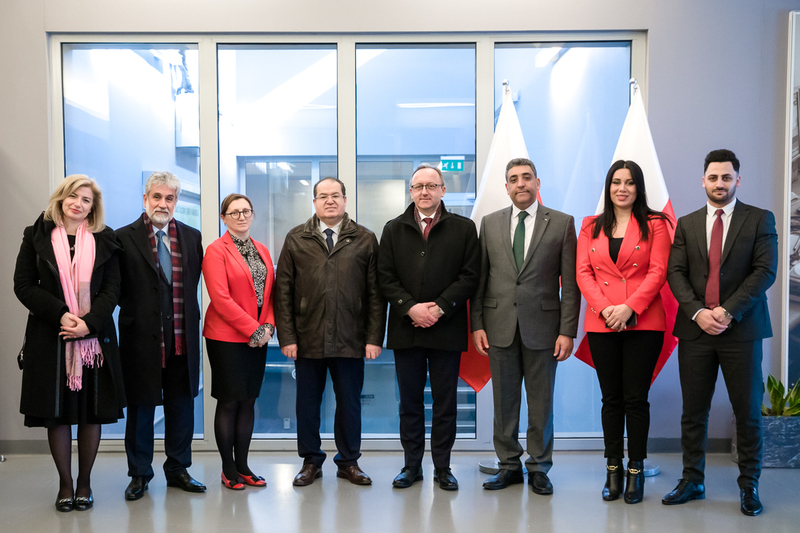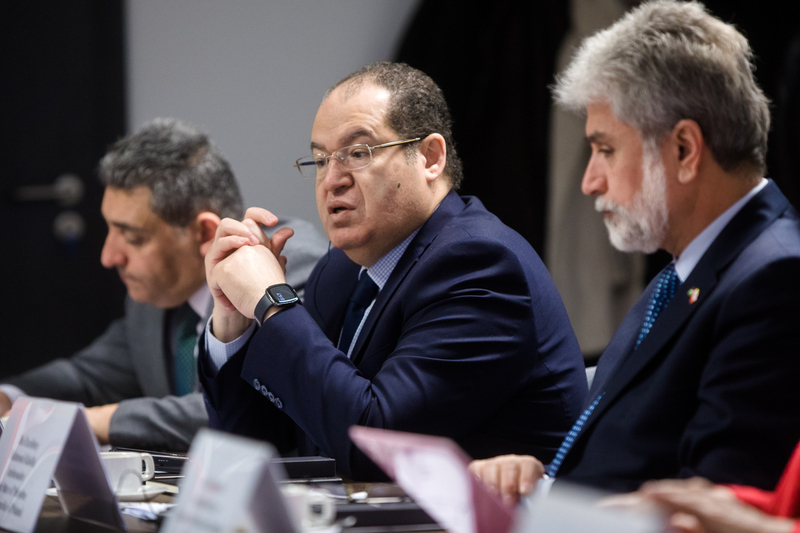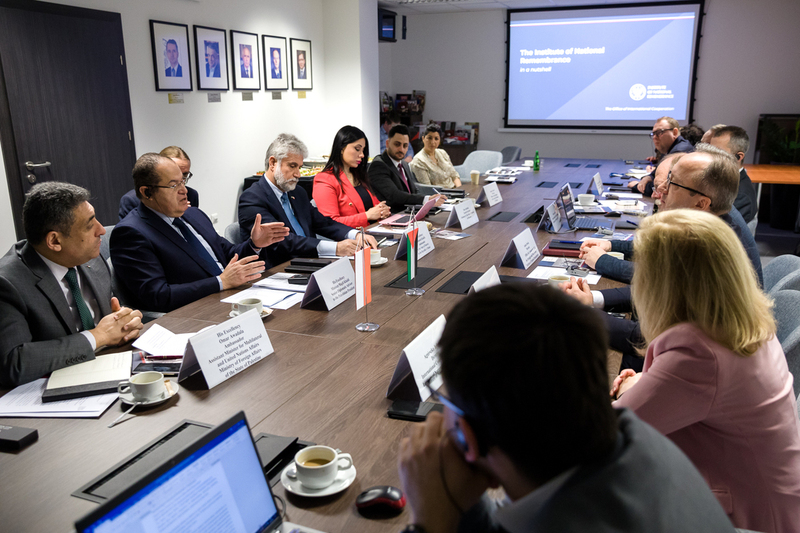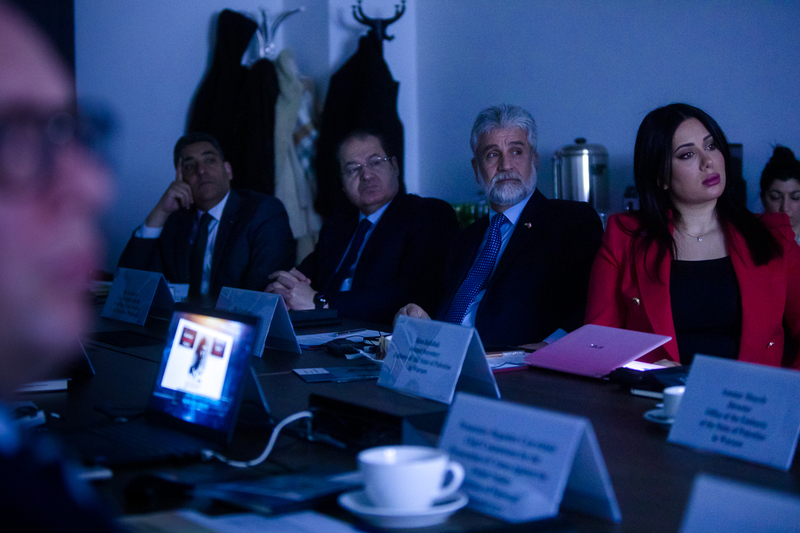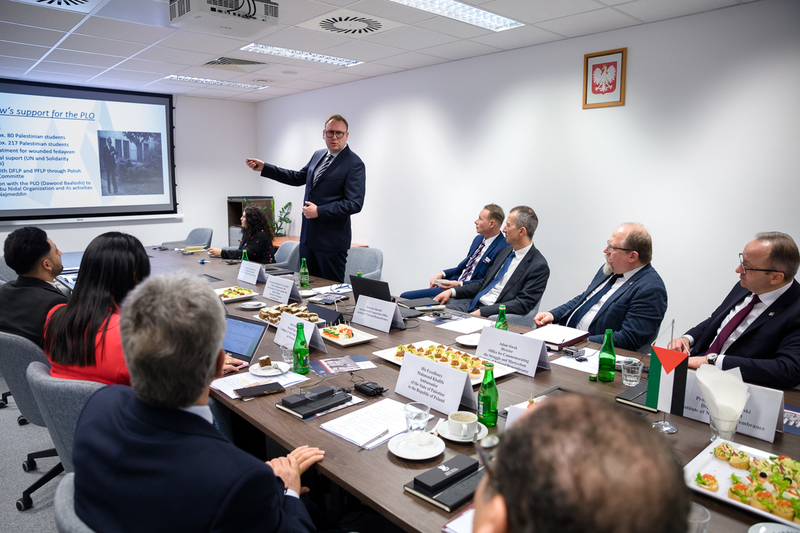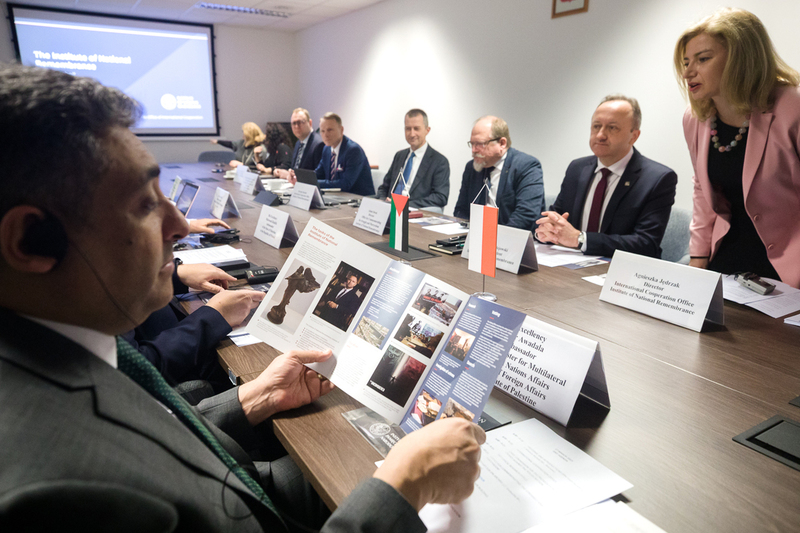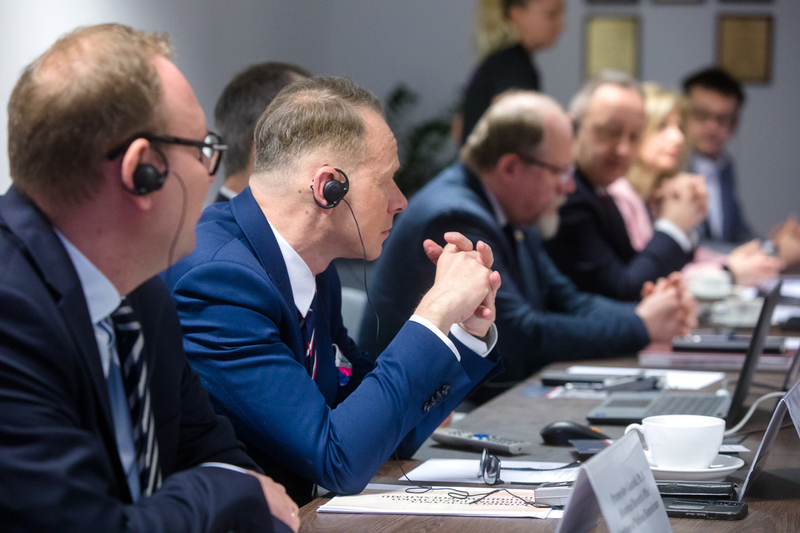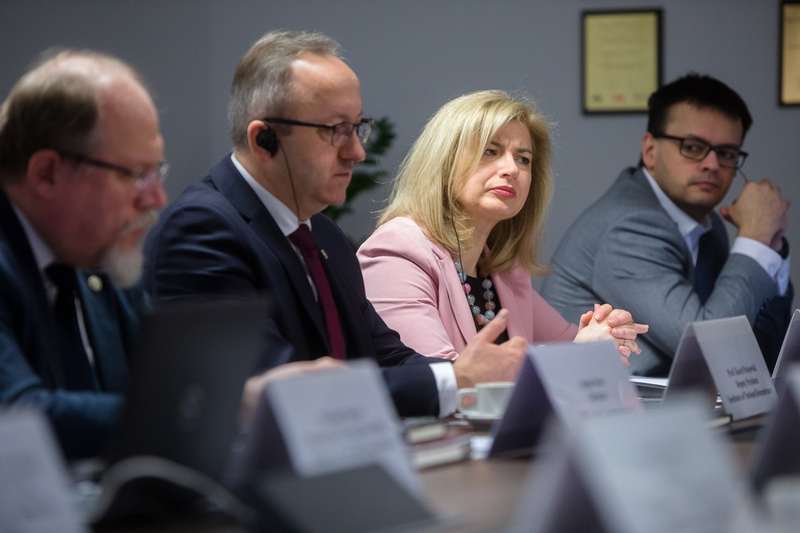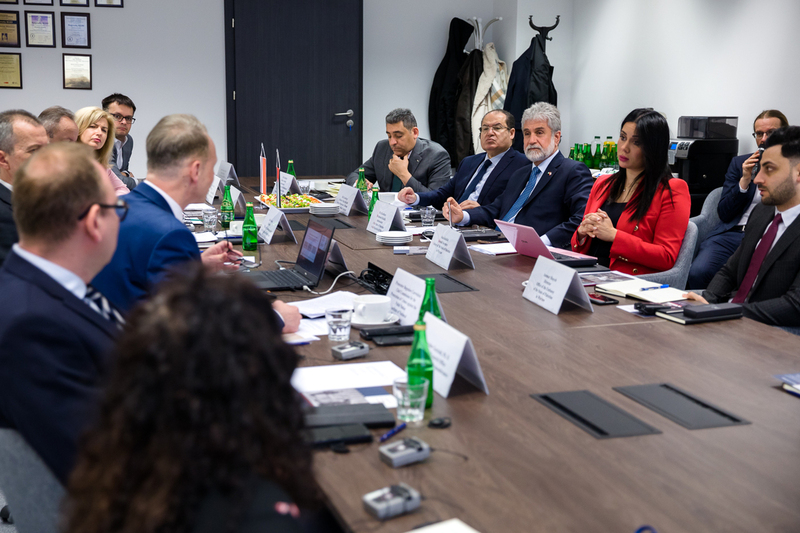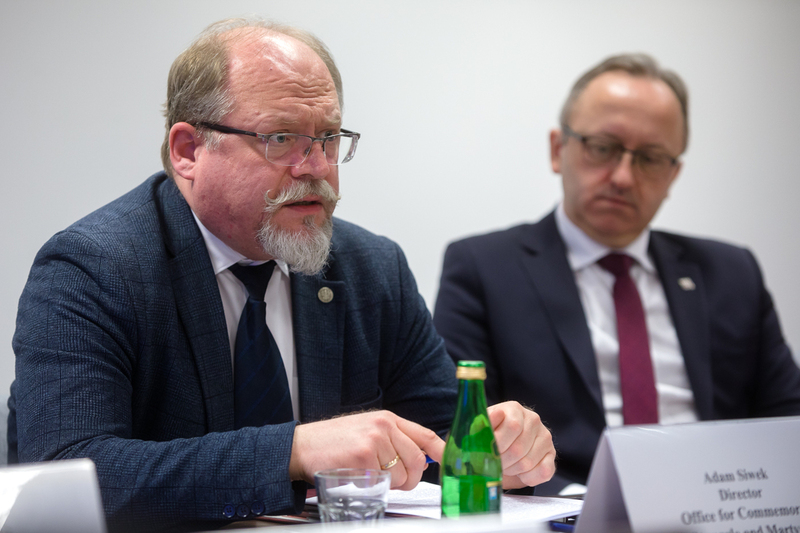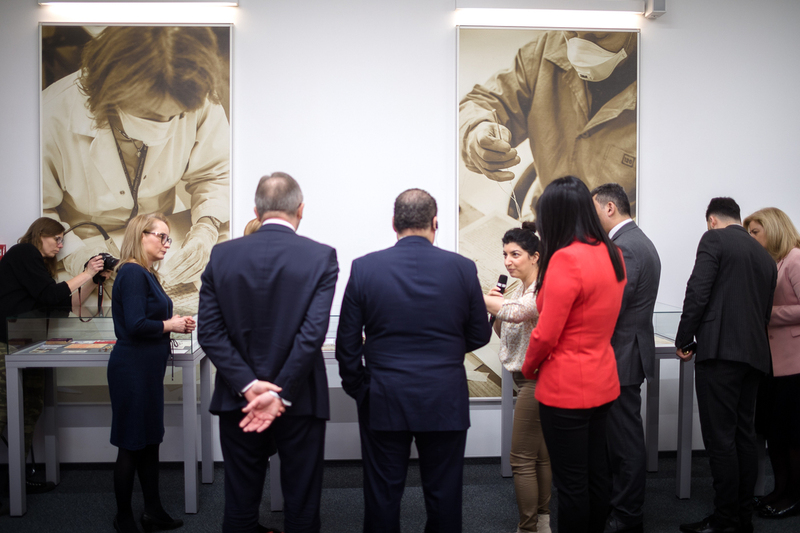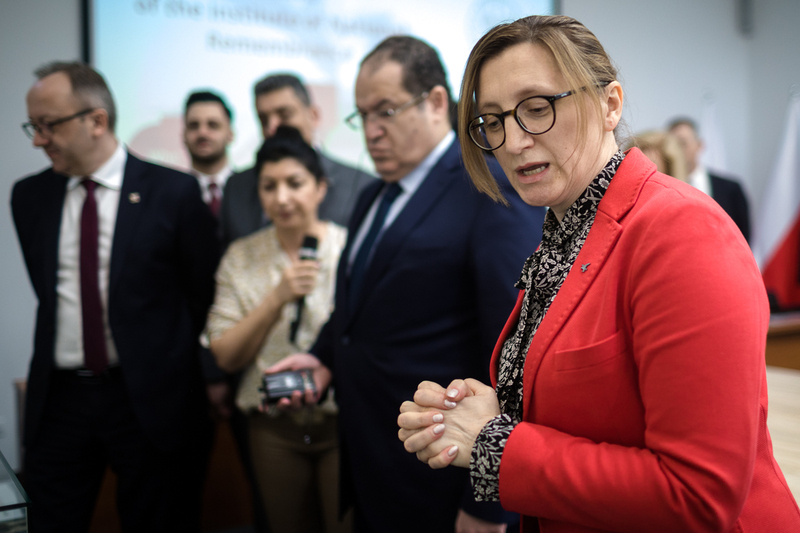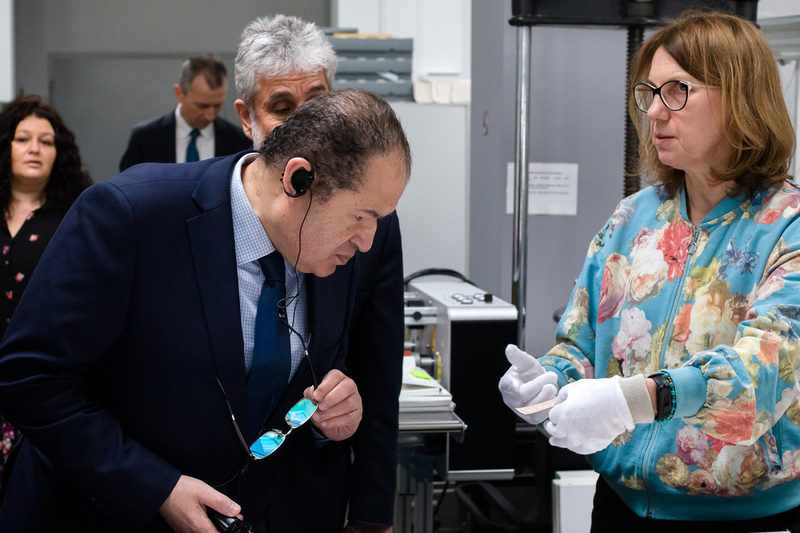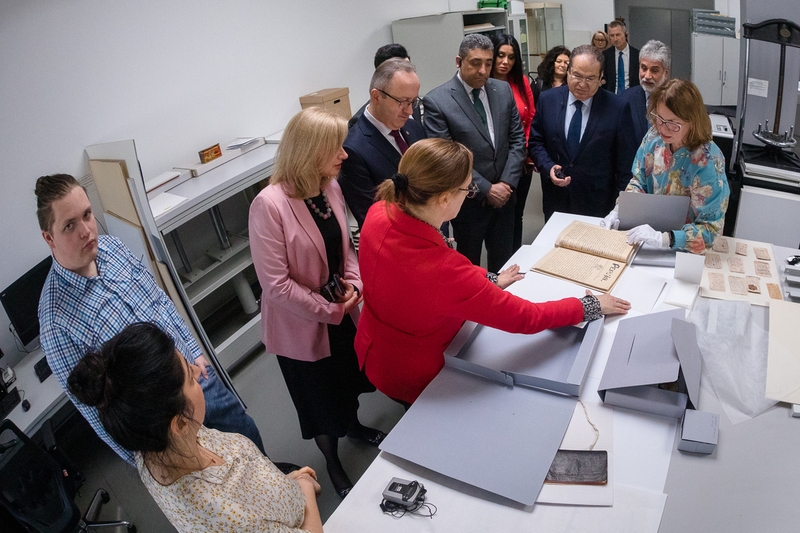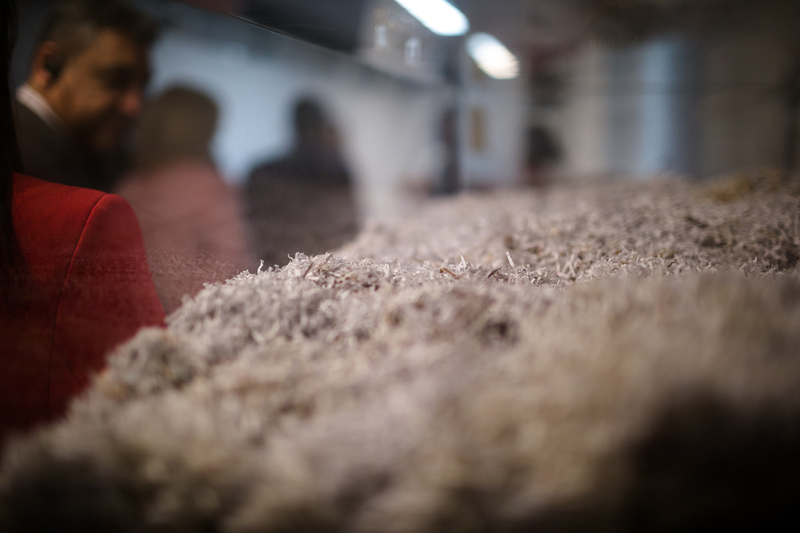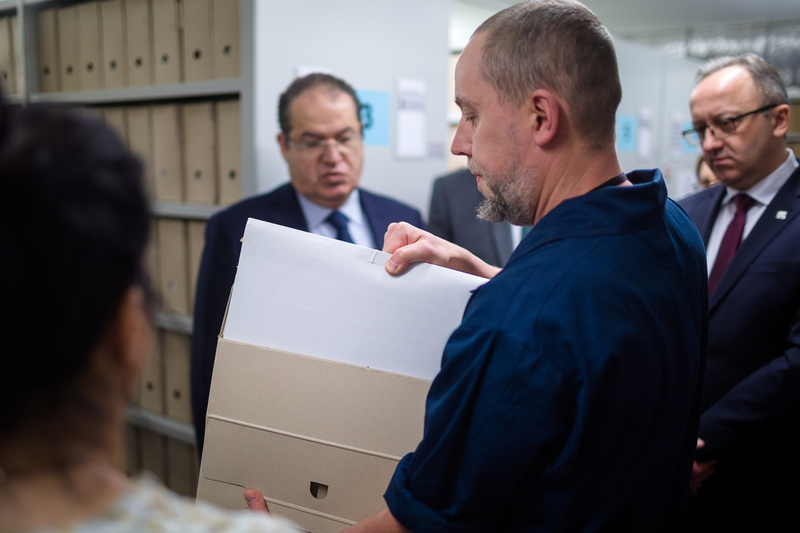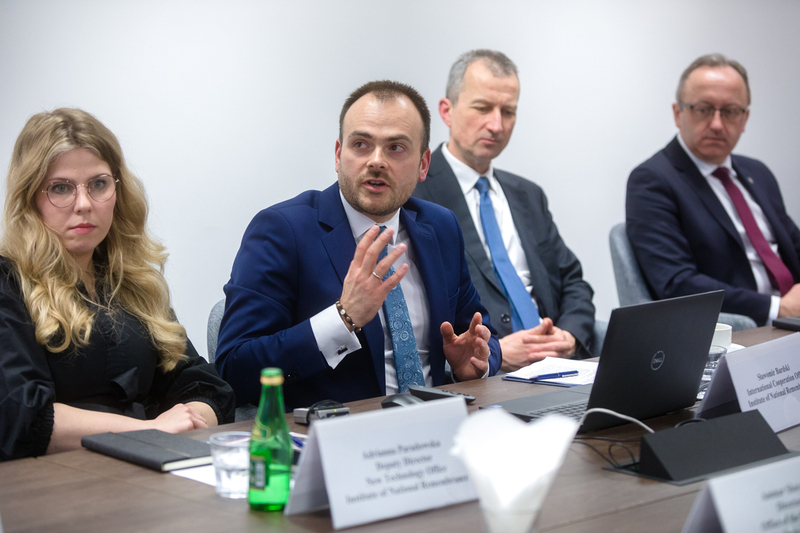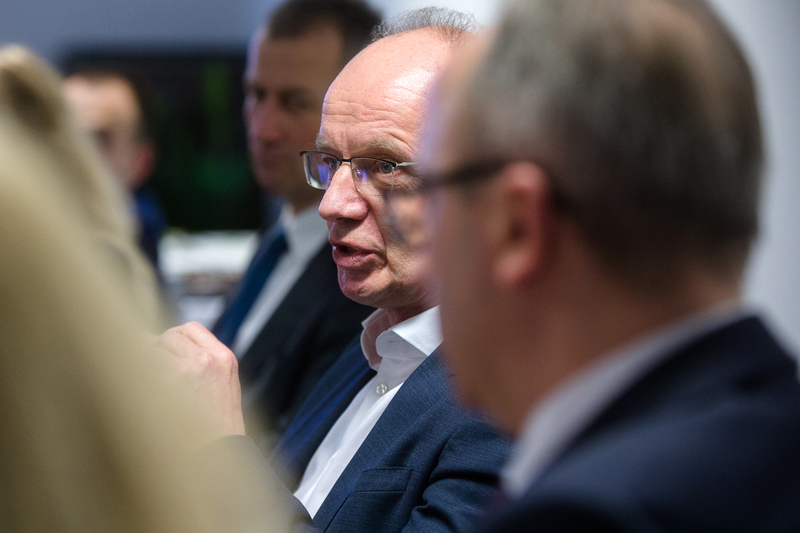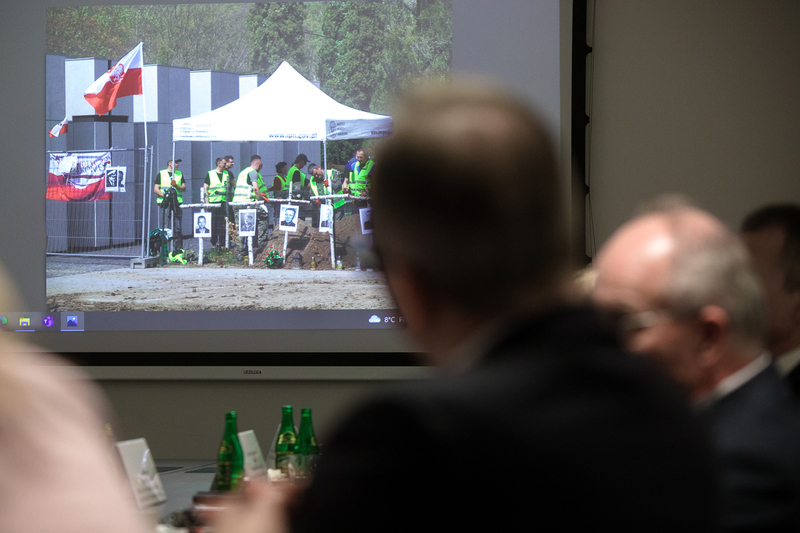On 17 March 2023, the IPN Headquarters and the Archive were visited by representatives of the government and diplomats of the State of Palestine. The purpose of the visit was to share the information about the Institute's activities and its experience in terms of transitional justice, including the model of dealing with the crimes committed by totalitarian regimes. The visit was organized by the IPN Office of International Cooperation.
The meeting was attended by Minister Majdi Khaldi, senior diplomatic advisor to Palestinian President, His Excellency Omar Awadala, Ambassador and Assistant Minister for Multilateral and United Nations Affairs at the Ministry of Foreign Affairs of Palestine, His Excellency Mahmoud Khalifa, Ambassador of the State of Palestine to Poland, Alaa Jadallah, Second Secretary of the Embassy of the State of Palestine in Warsaw and Ammar Shayeb, Director of the Office of the Embassy of the State of Palestine in Warsaw.
The guests were welcomed by Prof. Karol Polejowski, Deputy President of the IPN, who said that sharing the experience in prosecuting crimes of totalitarian regimes is not only one of the IPN’s statutory duties, but also part of the Institute’s mission. He recalled that the end of World War II had not brought freedom in Poland. Subsequent generations experienced the crimes of communist regime.
We will carry this burden until we name all the perpetrators by name, describe the circumstances of all the crimes, and provide a dignified burial for the innocent victims. And even if we succeed, it shall remain our duty to preserve the memory of the victims to avoid the resurgence of totalitarianism in the future, said Prof. Karol Polejowski
The Director of the IPN Office of International Cooperation Agnieszka Jędrzak presented the organizational structure of the Institute and the scope of activities of its subsequent offices.
Prosecutor Tomasz Czerwiński acquainted the guests with the legal regulations of the IPN's investigations and discussed examples of specific cases of communist crimes.
The Deputy Director of the IPN Historical Research Office Konrad Graczyk, Ph.D. presented the main research projects including recent publications in cooperation with the IPN Publishing House.
Przemyslaw Gasztold, Ph.D. shared the history of the relationship between communist Poland and the Palestine Liberation Organization in 1968-1990, based on selected documents from the IPN Archive.
The Director of the Office for Commemorating the Struggle and Martyrdom Adam Siwek spoke about IPN commemoration activities and focused on the issue of the decommunization of public space.
Another part of the meeting was a visit to the IPN Archive where its Director Marzena Kruk presented how the collections were secured, stored and preserved. The guests also had the opportunity to see selected archival materials related to Palestine.
The Deputy Director of the IPN New Technology Division Adrianna Paradowska described how challenging it is to attract the young generation, describing the latest projects such as "Cyphers Game”, "Szybowcowa '87" or Histhack.
Konrad Starczewski from the IPN National Education Office presented the educational projects including outdoor exhibitions such as Trails of Hope. The Odyssey of Freedom or Economy of the Third Reich, urban games and workshops, as well as study packages. He also talked about the popularization of Polish history abroad.
Prof. Polejowski stressed that the Institute's experts are always ready to offer advice and assistance to all countries that are just starting to settle accounts with the past in the name of democratic change.
The visit to the IPN ended with a speech by IPN Deputy President Prof. Krzysztof Szwagrzyk, who spoke about the search for the remains of victims of totalitarian systems, presenting various stages of the work, the specifics of field operations and the genetic identification process.
